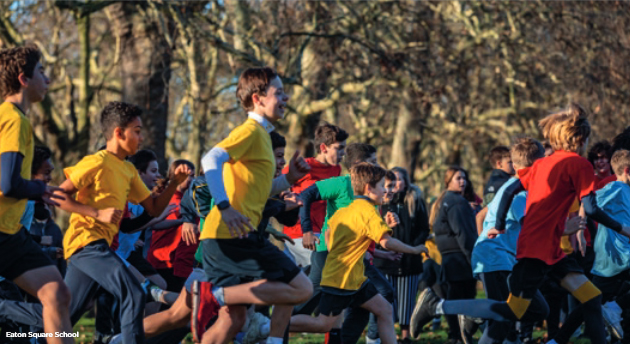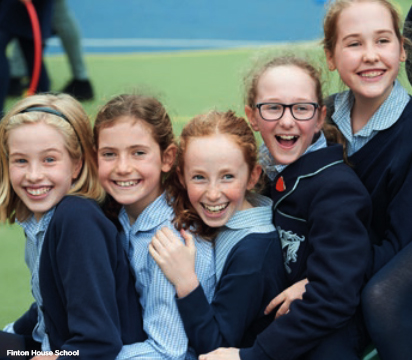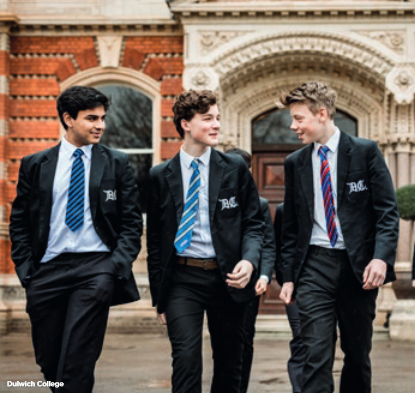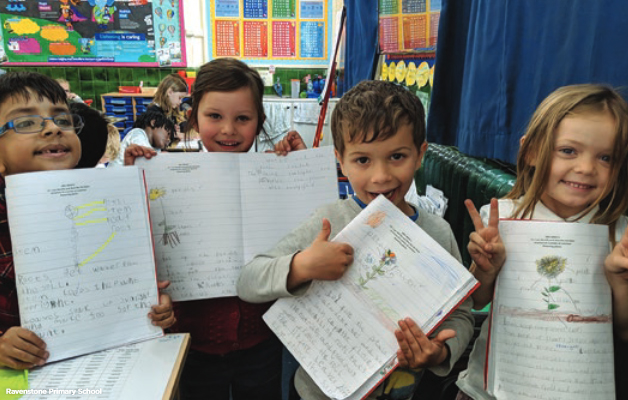Menu
It’s been another year of headlines as the government introduced controversial compulsory sex and relationships lessons, knife crime among young people rose to epidemic levels and the two main parties clashed over whether children should sit national tests in English and Maths in state primaries. Sian Griffiths, Education Editor of The Sunday Times, has the detail.
Despite the headlines, the one issue that has dominated the education world has been quite simply money – the lack of it. Headteachers grappling with frozen budgets and rising costs have marched, protested and campaigned for more funding for state schools. Over the past 12 months many schools had to make cuts to try to save money. Among the most dramatic: dozens of schools now close at lunchtime on Friday, leaving working parents grappling with childcare. In other schools, parents have been asked for donations to cover basics such as glue and pens.
In the front line have been teaching assistants, who some have called a “Mums’ Army” of staff, who specialise in helping children with learning difficulties and special educational needs. With teaching assistant posts slashed because of the funding shortfall many children with special educational needs are finding it increasingly difficult to cope in mainstream schools. Some schools are even “off rolling” or putting pressure on parents to remove children with SEN for fear they will not do well in exams and thus affect a school’s academic reputation.

The good news is that there are signs that campaigners’ voices are finally being heard on the need for more money for schools. For example, there are plans for a new Church of England VA (voluntary aided) secondary school in Hammersmith and Fulham which look likely to proceed, despite councillors indicating it is not needed. The Chancellor is expected to promise an increase in the autumn statement for education though whether it will match the teaching unions’ demand for an extra £1.3 billion remains to be seen. And there is a crackdown by Ofsted inspectors on schools that are expelling children – sometimes illegally without following proper procedure.
The effect of the constrained budgets in state schools has been to open the gap between state and top private schools even more when it comes to subjects like arts, drama and sports, the activities that build character and make children resilient. Adam Wells, Head of Pupil Services at the borough of Wandsworth admits: “The all-round offer isn’t there as it was in the past, but all schools offer good facilities and lots of investment.” He cites five recent CapEx projects in the borough: the converted hospital that became Bolingbroke, the award-winning new build at Burntwood, the new builds at St John Bosco and Chestnut Grove and the re-build at Ark Putney.
“The effect of the constrained budgets in state schools has been to open the gap between state and top private schools even more when it comes to subjects like arts, drama and sports, the activities that build character and make children resilient”
Nonetheless, while leading private schools build arts centres, state schools are cutting back on the arts or coming up with ingenious ways of protecting their existing provision. The Charter School in south London for instance, where parents include the Channel 4 news presenter Cathy Newman, last year asked famous artists and celebrities including Tracey Emin to donate postcard-sized works of art which they then auctioned to raise money for the school’s arts provision.
But the private sector is not without funding problems. Smaller schools in particular are struggling with a big hike in teacher pension costs as they try to match the pension benefits of state school teachers. Some have already threatened to pull out of the teacher pension scheme – but that could damage the quality of the teachers they attract.

Andrew Halls, Head of King’s College School, Wimbledon, explained that teacher pension contributions this year have cost the school some £680,000 which was not budgeted for.
One or two private schools, such as Millfield in Somerset, are talking about cutting fees, which have risen steeply across the sector in recent years. It’s a difficult balance to strike says Dr Gary Savage, Head of Alleyn’s. “I’d love to reduce the fees but we have to charge fees to do what we do. Costs continue to rise exponentially. In the long run, decelerating fee increases is less in our control.” However, private schools are helping with increased bursaries and more 100 per cent bursaries.
Despite these challenges, the top private schools are still able to offer much smaller class sizes than their state counterparts. They can also still pay a lot more to attract teachers in shortage subjects such as maths, science, foreign languages and computer science. The teacher quality shows in their exam results. Last summer almost half of A level entries at independent schools scored A or A* grades – twice the national figure.
By contrast, in the state sector there are teacher shortages in subjects including maths, science, computer science and languages, a crisis likely to be made worse if Brexit happens and teachers from EU countries return home. Only 80 per cent of the number of trainee secondary school teachers needed in the state sector were recruited last year, with targets missed in nearly all subjects. In addition, over the next six years the forecast is that pupil numbers will increase by almost 20 per cent making the teacher recruitment and retention problems even worse and class sizes even bigger unless action is taken.
Moreover, changing demographics are adding to their woes. As the population bulge in primary schools moves through to secondary there is growing concern that some parts of the country will be swamped by demand. However, in Wandsworth, Adam Wells is content that they have matched demand with supply. “We have no plans for new schools as there is no need. Our strategy has been to expand existing schools,” he says, although there are plans for a new primary school in Nine Elms if demand materialises.
Wells points out that it’s not necessarily about the need for places but more about demand for particular schools, such as in the Northcote Road area. State primary schools such as Honeywell and Belleville remain hugely popular, evidenced by their smaller threshold distances, of 250m and 391m respectively.

Despite this, 75 per cent of parents were successful in getting their first choice of primary school in the borough, compared with 60 per cent for Wandsworth’s 11 secondary schools. “Overall, 95 per cent were offered one of their preferred schools so it demonstrates that we’re meeting parental preferences,” says Wells.
Some of our best state school teachers are also being lured abroad to work for lucrative tax-free salaries in overseas schools like Dulwich College and Brighton College. State schools, even our best grammar schools, are now saying they cannot offer A level classes in less popular subjects such as music and German, because they cannot afford the pupil teacher ratios.
One subject not being discarded in either sector is coding. As a growing opportunity in the workplace, schools are embracing the challenge. “All around the globe coding has become an intrinsic part of our lives,” says Eveline Drut, Headteacher at Eveline Day School. “We believe that children as young as three years old in our Reception classes should explore the world of coding and build upon these skills all the way through to our senior year children. We give them the opportunity to develop their logical thinking and problem-solving skills through fun and exciting games and platforms which brings out their creativity and imagination.”
Coding can strengthen cognitive skills and encourage logical thinking too. The concept of coding as an essential life skill is echoed by Graeme Delaney, Principal at The Hall School Wimbledon. “Coding encapsulates, among many other skills, problem-solving, team work, resilience, inquisitive mind and creativity in a cross-curricular environment. Whether developing computer games or building and programming robots in a competitive environment, coding is a fun and useful skill for life and work. Learning how to solve real life problems through coding prepares you to live in the digital world of today and succeed professionally in the future.”
However, opportunities come with risks and we must help children make sense of the digital world, explains Deputy Master Academic, Damian King at Dulwich College. “In an age in which data is power and large companies are using that data to anticipate behaviour and make devices more addictive, teaching pupils about what information they are unwittingly sharing as well as being aware of cyber security is critical. In turn, we are aiming to develop users and creators that have an appreciation of the world they are shaping, a knowledge of what consequences there are to using the web and assessing what is real and what is fake. In short, an awareness of Digital Citizenship.”
Bullying, suicides, mental health issues and knife crime have been some of the issues worrying education experts this year. One of the saddest stories I wrote last year was based on an interview with Pat Sowa, a former primary headteacher whose lovely, clever 17-year-old son killed himself after being bullied for being gay. With the suicide of the south London schoolgirl, 14-year-old Molly Russell and her father Ian’s powerful interviews drawing attention to the self-harm she had viewed online before her death, there is increasing scrutiny in schools of the effect of the online world and social media on children.

New compulsory sex and relationships lessons being piloted in state schools will mean that even five-year-olds can be taught about healthy relationships, and same-sex families. In secondary schools the lessons will include sex education as well as the risks of cyberbullying, sexting and viewing pornography websites.
Rising numbers of children, including very young ones, are being diagnosed with mental health problems, ranging from anorexia to anxiety and depression, and schools are required to shoulder responsibility for monitoring the problem. Teachers are being sent on courses to spot the signs of mental illness and lessons in meditation, yoga and mindfulness are being introduced in many schools.
The knife crime epidemic among youngsters – and the rising death rates – are also being tackled in classrooms especially in big cities like London, Birmingham and Manchester with hard-hitting lessons even in primary schools and talks from bereaved parents and police about the dangers of carrying a knife.
The risks and benefits of regularly testing and examining children has been in the news too. At the biggest teaching union conference this spring, Jeremy Corbyn promised to scrap all national tests in primary schools, or Sats as they are known. By contrast the Conservatives are still determined to introduce a so-called baseline test for four-year-olds, despite concern from some parents, and continue testing 11-year-olds. The last of the new harder GCSE subjects were rolled out in this summer’s exams for state schools. Some private schools are insisting on sticking with international GCSEs, which some critics say are easier, while they watch how the new tougher GCSEs and A levels bed down in the state sector.
Top universities are coming under pressure to accept more state school pupils. One private school head, Stowe’s Anthony Wallersteiner, believes that access and participation plans had “successfully driven down the number of Oxbridge places awarded to privately educated pupils”. For the first time for a while there are clear signs that in some parts of the country, notably London, the gap between state and private school achievement is closing. But parents should always visit any school they are thinking of applying to, to make sure it is a good fit for their individual child and their needs and passions.
